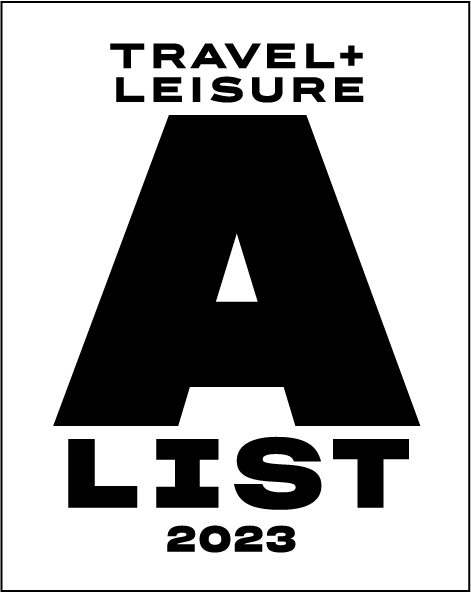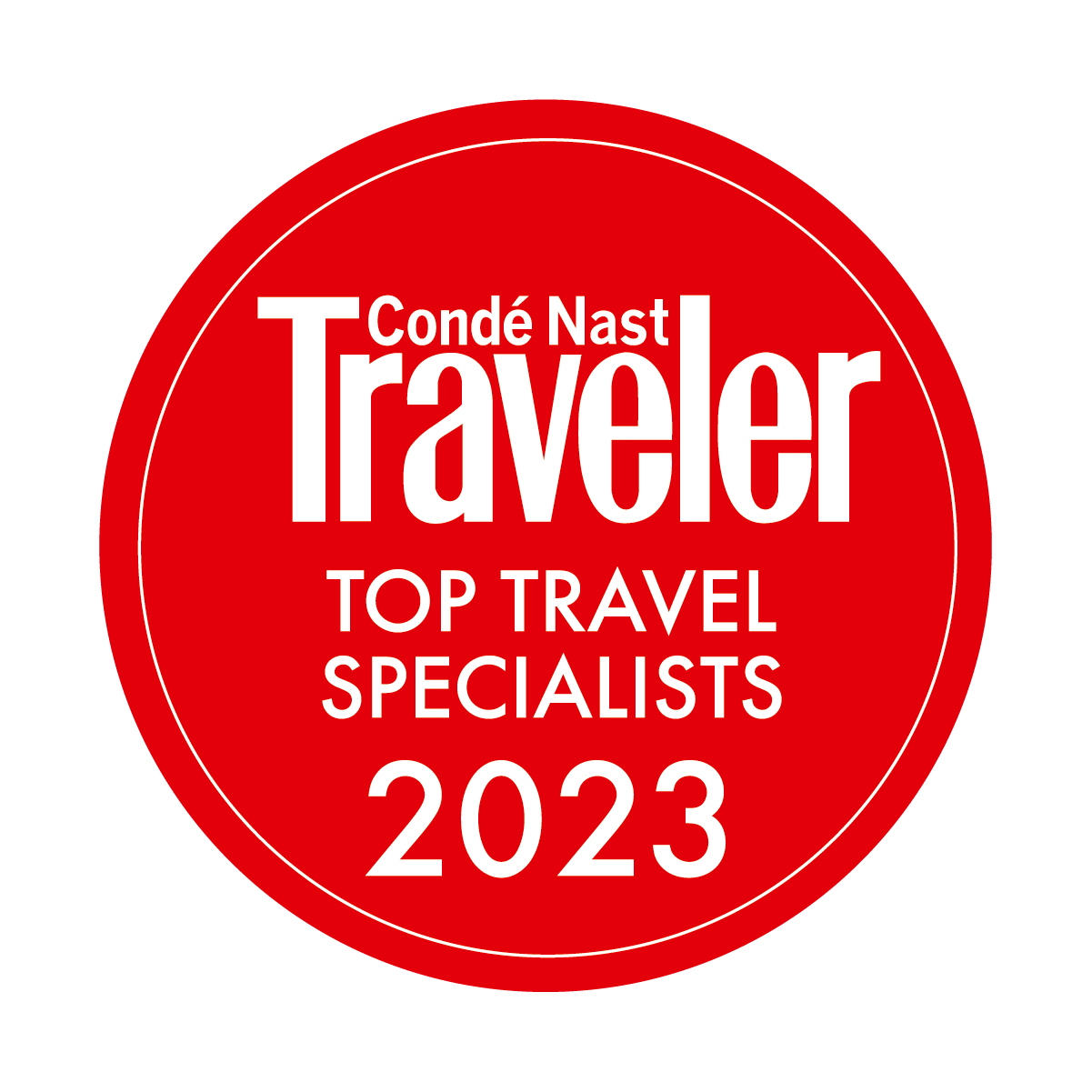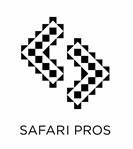Before you go to Morocco
VISA
U.S. and Canadian citizens need only a valid passport. Citizens of other countries should call the Moroccan Embassy in Washington (202 462 7679) to determine if you need a visa.
WEATHER
Throughout most of the year, Moroccan mornings and evenings can be chilly; bring clothes that allow you to layer. If you will be in the Sahara, please note that early mornings and evenings can be extremely cold, so please prepare.
Weather is rather unpredictable from October through March and can vary greatly from one year to the next; some winter days are quite temperate and sunny; others are wet and cold. Although there is a chance you might encounter rain at any time, the odds are greatest between November and February.
DRESS
Dress respectfully. Although members of mass-tourist groups often wear shorts, we encourage our clients to dress with respect for the local sensibilities: knees and shoulders should be covered for both men and women.
LANGUAGE
More and more young Moroccans are speaking English, yet a few words of French will get you a long way. If you really want to earn some points (and have some fun), pick up a few words of Moroccan-dialect Arabic (any guidebook will have a list of important phrases and Berlitz publishes a small dictionary).
LIFE IN MOROCCO
Morocco is not Switzerland. Morocco and Moroccans function on their own sense of time and their own cultural constructs, which may not always seem the most efficient to a Westerner. Some travelers may find this frustrating. But, a sense of humor, a bit of patience and a smile will go a long way.
MONEY
The exchange rate is approximately 8 – 8.5 dirham to the dollar. Many hotels give you about the same rates as banks. Visa and Mastercard are commonly accepted at larger places (at smaller places always ask, even if they have the sticker on the door). American Express is less commonly accepted. It is not uncommon to pay an additional 3 or 4% for using a credit card. ATMs are now found in most major cities. When purchasing items that you are having shipped home, be sure to place your purchase on a credit card.
Morocco has strict laws concerning the import and export of Moroccan currency. There is a small chance that you might be asked to show your currency upon boarding a domestic flight. If you are carrying a large amount of dirhams, please explain to the security officer that you are only traveling within the country.
GRATUITIES
We are often asked how much to offer in gratuities. They are completely up to you and offered only as a sign of respect and appreciation for a job done with care for you and your family or friends.
When asked for minimums, we suggest the following starting points for two people:
- Guide: $30 to $50 USD (or more if you choose) per day.
- Driver $20 to $30 USD (or more if you choose) per day.
SAFETY
While theft is not terribly common, do exercise common sense, especially when in the souks and medinas. When traveling, keep your valuables in a money belt or some other secure device. Each hotel provides you with a safe, either in your room or at the front desk. Please use it.
PHOTOGRAPHY
Some Moroccans, especially women and older men, do not like to be photographed or videotaped because of a combination of religious and folk beliefs. If a woman is veiled, assume she would not like to be photographed. Please show respect - ask before taking a photo, use a wide angle or point the camera away from them. Be especially sensitive in Fes and Essaouira. In the deep south among the Berbers, this is less true, especially among children. It is fun to bring along a Polaroid so that you can take pictures of children you meet and give the photos to them on the spot.
POLITICS
As westerners, we are used to the open discussion of politics. In Morocco, people generally do not openly discuss Moroccan politics and may not be overly receptive to your points of view. If someone seems anxious to start a political discussion, it is best to walk away from it - especially if it involves the U.S. or East vs. West themes and certainly if it involves Israel and the Middle East.
It is considered a sign of enormous disrespect to say – or even suggest – anything negative or mocking concerning the King, his deceased father, or members of the Royal Family. As guests in Morocco, you are urged very strongly to avoid saying anything about the King, even if intended in a joking manner.
TOURING
We encourage you to be spontaneous - this is your vacation. If you want to skip a few sites, go ahead. If you want to stop for a photo or a stroll, just ask your driver/guide. Your guide may rearrange the order of certain sites to make your trip work better for you. You may visit everything in your itinerary, but not necessarily in the same order within a certain city. Holidays in Morocco are often not set until the last minute (by declaration of the King). On Fridays, things slow down around noon as many people go to mosque. Moulay Idriss and the interior of the Mosque Hassan II in Casablanca are closed on Fridays to non-Muslims.
WHAT TO BRING
Bring at least one set of dressy clothes. Bring comfortable walking shoes that have already been broken in. Bring exercise clothes if you wish to work off some of those many sweets you will be eating. Many hotels have exercise rooms and hammams (similar to Turkish baths) available.
We recommend bringing sunscreen and a hat, as the sun can be very intense. You might want to bring some Woolite for hand-washing; the hotels' laundry services can be very expensive. Also bring sufficient memory cards, a spare battery and a charger for your camera, especially if you will be in the more remote areas. It is always a good idea to bring your own travel alarm; many, but not all, of the hotels have hairdryers. If you bring your own, be sure to bring an adapter/converter.
ELECTRICAL
Morocco’s electrical plugs operate at 220 volts, 50 Hz (the US uses 120 volts) with a two- pin round plug adapter. Most appliances will also need a converter (some larger electronics, like laptops and mp3 players, have converters built-in). Adapters and converters can be bought at Magellan Travel Supplies (1 800 962 4943 or www.magellans.com).
FOOD
Moroccan cuisine is considered by many experts to be among the world's finest. It is characterized by the use of a plethora of spices, including coriander, cinnamon, cumin, saffron, dried ginger, and paprika.
Common dishes include couscous, which often contains raisins or nuts, roasted lamb or chicken, and harira, a thick tomato-based soup with chickpeas and meat traditionally served during Ramadan. Stews called “tagines” are also ubiquitous; though each cook has his or her own secret recipe, the basic ingredients are meat or fish and vegetables cooked in a tagine (or a cone-shaped terra cotta vessel).
We encourage you try the local variations (p’stilla in Fes or the excellent fish in Essaouira) and ask your host for the specialties of the house.
Moroccan sweets are plentiful and very rich; no trip to Morocco would be complete without them. A popular dessert is khab el ghzal (“gazelle’s horns”), a pastry stuffed with almond paste. Most sweets use plenty of sugar, honey, almonds, sesame seeds, and filo dough. Fruit, both dried and fresh, is often eaten after a meal, along with a cup of mint tea. Let your server know if you’d prefer no sugar or only a little sugar in your tea, since it’s generally prepared with enough to make your teeth squeak!
WATER
Although many travelers drink the local water, it is our advice to entirely avoid tap water (including ice) at all costs. Mineral water is available everywhere, as is hot tea and the ubiquitous mint tea. Drinking tap water is the easiest way to ruin your vacation. Sidi Ali is the best brand of bottled water in Morocco – we recommend it when possible.
Avoid uncooked vegetables and fruits (unless they can be peeled), food or fresh drinks sold from street vendors, and cheap restaurants. Cooked food in four and five-star hotels and the better restaurants is generally safe.
Freshly squeezed juices (from standards like orange, banana or apple, to more exotic juices like avocado or almond) are available and inexpensive. Use your judgment. Milk is not always pasteurized outside of the hotels; be sure to ask.
It is always prudent to travel with medication for upset stomach, just in case. We urge our guests to be especially careful for the first few days. If you get carsick, bring something for the mountain passes south of Marrakech. As the bacteria in Moroccan food are different from that in American food, many expats recommend a medicine available over the counter in Moroccan pharmacies called Ercefuryl 200 (Nifuroxazide).
Bring any medication you foresee needing. Keep them in your carry-on bag in case your luggage is lost. Pharmacies are generally very well stocked, but drugs generally come from France and do not carry the names by which we know them.
MEDICAL
Although no inoculations are legally required, make sure you are current with polio, tetanus and diphtheria. Cholera and hepatitis A are often recommended.
We urge you to consult your doctor regarding your specific requirements. If he or she asks you whether you will be traveling outside the large cities, the answer is yes.
You will, however, be eating in four- and five-star hotels and better restaurants; warnings about travel in the south are generally geared to backpackers and campers.
We urge all our clients in the strongest of terms to wear seatbelts at all times when on the road. If you are driving independently, we urge you to exercise extreme caution at all times. All vehicles we use are required to have fully functioning seatbelts.
HOTELS
For all the charm and beauty of some of the hotels and riads in Morocco, it is easy to forget that you are in a developing country, where service is often not up to western standards.
In order to avoid frustration, don’t take inattentiveness or slowness as a personal affront. Moroccans do not always have the same emphasis on promptness and efficiency that we might in the West. Try your best to just accept this as part of the charm of a place like Morocco.
Always allow a little extra time for checkouts. Check your bill for mistakes. If there is a mistake, assume that it is unintentional and ask kindly that it be corrected. The best way to get what you want in Morocco is always with a bit of patience and a kind smile. Hotel staff is often overworked and appreciate a kind word or two and a bit of graciousness.
The simple effort to learn someone’s name or say hello can go a long way in Morocco. You may also be enriching your own experience and making a human connection.
Please note that there is a wide variety in the quality of hotels from one city to another. We endeavor to select the best accommodations possible based on your preferences, budget and availability for your dates. But after a few days at an ultra-luxe hotel, the next hotel may seem like a letdown by comparison, even though it may be the best available in that particular city or area.
SHOPPING
Morocco is a shopper’s delight. There is a long and highly-respected tradition of craftsmanship in Morocco. The level of workmanship is still valued by Moroccans and many traditional crafts have been reinterpreted by a new generation of artists and artisans. There is also a long and deeply-ingrained tradition of bargaining.
Shopping in the medinas can be a lot of fun, but it can also be tricky.
Seven important rules:
1) Do not believe anything that a salesperson tells you about the age or value of an item. Many rugs and other items are “antiqued” - often very well. There are many legitimate antiques on the market, but you can pay dearly for them. If a deal seems too good to be true, it probably is.
2) Buy something because you like it, not because the salesman is telling you it is old or particularly valuable. It most likely is not. Buy something because you think it is beautiful.
3) Bargain hard. Decide the maximum you will pay before you start bargaining. You are not going to get a great deal, but you can bargain for a fair price. It has been said that a good rule of thumb is to halve whatever you’re first offered, and bargain from there.
4) Be patient. Bargaining can take time. Keep a sense of humor and a smile while you bargain and you will get a lot further. Smiles and a few words of Arabic may help.
5) Even though it may mean a few more dollars, use your credit card if shipping (see below) and stop payment within the authorized window of time if your purchase has not yet arrived.
6) Do not be scared to shop or bargain. With the right outlook, they can both be a lot of fun. (All of us at Heritage Tours Private Travel have homes full of Moroccan memorabilia!).
7) Buy only what you really want and make sure you feel comfortable with the price. To buy or not to buy is ultimately your decision, not the store owner’s.
And THE most important rules:
8) Have fun. Have fun. Have fun. It is all part of the Moroccan experience.
Many reputable stores will ship your purchases home for you. When purchasing anything to be shipped, it is critical that you use your credit card (some stores will charge you an extra 3 or 4%, but it is the only way you will have any recourse in case of problems). Keep your credit card receipt and the store receipt.
COMMISSION SYSTEM
It is a fact of life that there is a pervasive commission system in Morocco. Commissions are received by guides, hotel concierges and, with a handful of exceptions, riad managers/owners.
While the idea of commissions can be frustrating for those of us with a Western outlook, they are a big part of the Moroccan economy and accepted by the general society the way we accept (perhaps unhappily) realtor commissions. The costs of commissions are factored into the costs of goods. Most Moroccan experts (including ourselves) believe that if a commission is not paid to a guide or riad owner, unlike the analogy of a real estate broker, that discount is not passed onto the purchaser even though the owner might tell you it is (we have tried it both ways many times).
We take the selection of our guides extremely seriously. They are individually hand-picked and are considered to be the finest in Morocco. They are the face of Heritage Tours Private Travel in Morocco.
Their first responsibility is to offer you insights into Morocco. If you choose to shop in Morocco and you wish for your guide’s advice, their job is to assist you to the best of their ability in choosing stores that are reputable. They are able to advise you if a price is egregiously unfair or if you are being ripped off. Feel free to ask for their help in choosing shops or bargaining if you feel comfortable in doing so.
Ask your guide to stay with you so you can leave the store when you are ready. Never allow a store owner to make you feel pressured into buying anything; you will not be the first person who has left Morocco without buying a carpet.
Places to avoid:
Roadside stores.
The large “department stores” outside the medinas.
The so-called “Jewish museum” in Fes. It is neither Jewish or a museum.
La Lampe d’Alladin in Marrakech.
Most of the better stores are located in Fes or Marrakech. We would suggest as starting points the following as some of the stores with better reputations, but we cannot vouch for the honesty of any merchant. Some of the more expensive stores are fixed prices.
Each city has a government-run Artisinale, where you can find decent-quality objects at fixed prices. The atmosphere is bland and shopping here is not as much fun as in the souk, but you are guaranteed fair prices; it’s a good place to go if you don’t have much time. The one in Marrakech (near Hotel Islane across from the Koutoubia) is especially good; there is a zellij (ceramic mosaic) workshop in the rear. If you plan to do serious shopping, visit at least one of these before you start shopping in the souks to see the range of prices you should be paying.


